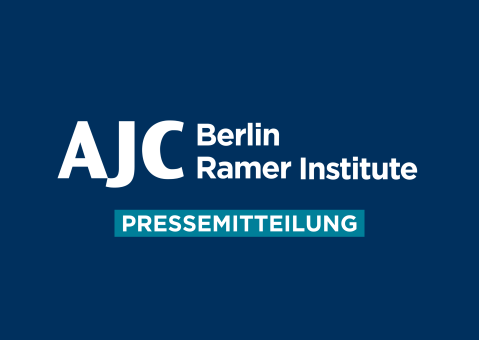Teilen auf
by Remko Leemhuis April 3, 2024. This article was first published at Jüdische Allgemeine.
Foreign Minister Baerbock traveled to the Middle East once again at the end of March. Before her seventh visit since the Hamas terrorist attack on 7 October 2023, she issued a press release calling for an immediate "humanitarian ceasefire" in the war between Israel and the terrorist organization Hamas, which should then be transformed into a "permanent ceasefire".
At the same time, she also let the Israeli government know that although Germany stood by its historical responsibility for Israel's security, agreeing that Hamas should never again be able to carry out an attack like the one on October 7, this could not be achieved by military means alone.
However, no explanation was provided of how the Jewish state should protect itself from a renewed attack by the Palestinian terrorist organization without defeating it militarily. It can most certainly be ruled out that the Islamist mass murderers will voluntarily lay down their weapons.
If the Federal Foreign Office and the entire German government take this seriously, they could indeed make a decisive, non-military contribution to weakening Hamas. This would require finally putting Iran's Islamic Revolutionary Guard (IRGC) on the European Union's terror list. After all, they are responsible for all of the Mullah regime's terrorist activities abroad.
Since the IRGC now controls all major sectors of the Iranian economy, such a move would not only affect the entire Iranian economy to an unprecedented extent, but would also reduce the financial capabilities of various terrorist organizations supported by Tehran, namely Hamas in Gaza, the Houthi in Yemen and Hezbollah in Lebanon, as well as many other Shiite militias that are systematically destabilizing the entire region.
And ultimately, this would also be a tangible contribution to Europe's security, since it is primarily Iranian drones that rain down on Ukrainian cities every day.
So far, this has not happened and has always been rejected by the Federal Foreign Office with reference to a legal opinion of the European Union, which states that the conditions for a ban do not yet exist.
However, it has been publicly known for some time that this position is not consistent with the content of this classified EU paper. On the contrary, the report shows that with sufficient political will, it would be possible to designate the IRGC as a terrorist organization and place it on the list accordingly. Legally, the necessary instruments are available. However, as this report has not yet been made public, there can be no broad social debate about it.
Renowned international law experts have indicated that the expert opinion sets out the legal possibilities for listing in its arguments. And it has rightly been pointed out that even if the legal framework did not exist, it is a question of political will, and the basic legal actions could be created in the EU. The Federal Republic of Germany has a decisive role to play here.
If there was a need for concrete justification and proof that the threat from the Revolutionary Guard is not limited to the Middle East region, there is now also a compelling domestic political reason: Last week, the verdict on the Molotov cocktail attack on the Bochum synagogue in November 2022 was published. In it, the judges at Düsseldorf Higher Regional Court found that the perpetrator had acted on the instructions of the Iranian regime.
Fatal Signal
Although the Revolutionary Guard is not explicitly named as the instigator, anyone familiar with the regime in Tehran knows that this can only be the IRGC. It would be a fatal signal if even this attack on Jews in Germany on behalf of Iran did not finally have consequences.
If the Federal Foreign Office and the German government do not want to list the IRGC for political reasons, then they should present their arguments publicly and open them up for discussion. Summoning the ambassador, as happened after the publication of the grounds for the judgment, hardly does justice to the danger posed to Jews in Europe by the Revolutionary Guard.
And finally, it is worth mentioning in this context that the Islamic Center Hamburg is still not banned. Here, too, the question arises as to why the German government is hesitating. Closing this most important outpost of the antisemitic terror regime in Europe would not only send a clear signal to the mullahs in Tehran, but would also make a concrete contribution to the security of the Jewish community in this country.
The time of hesitation, of smoke and mirrors and of keeping a low profile vis-à-vis the regime in Tehran, both in terms of domestic and foreign policy, must finally come to an end.




